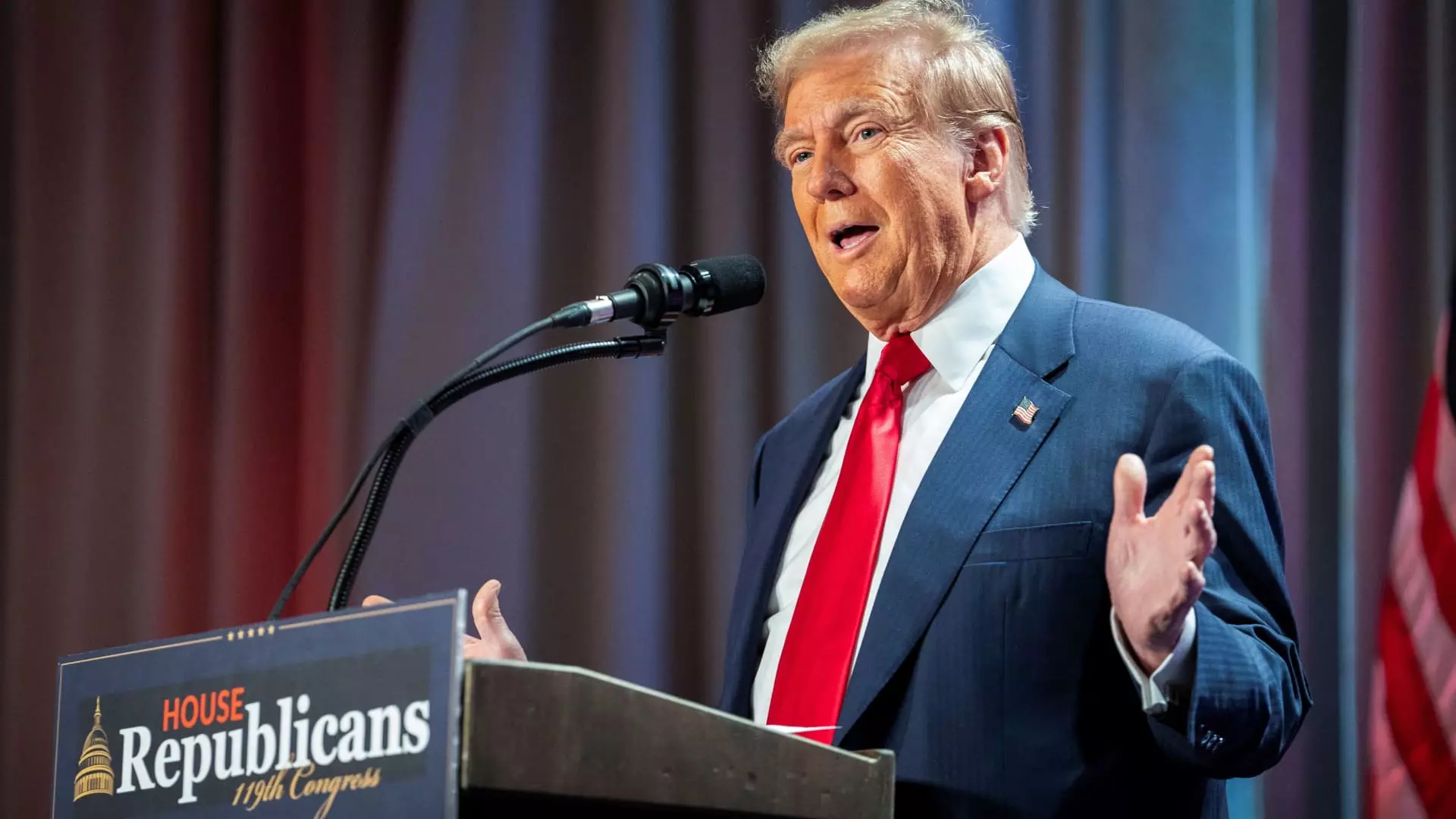In a significant and controversial move, President-elect Donald Trump has nominated Chris Wright, a prominent figure in the fossil fuel industry, to helm the Department of Energy. Wright’s appointment marks a clear commitment to reinforcing traditional energy sources while navigating the complexities of modern energy demands. As the founder and CEO of Liberty Energy, Wright’s perspective on energy production lays foundational ground for the expected policy direction under Trump’s administration.
Chris Wright is best known for his work in the oilfield services sector, a role that arguably positions him as a pivotal player in the fossil fuel narrative in America. With a Bachelor of Arts in Environmental Economics and a successful career spanning over two decades, his expertise has been shaped by a strong belief in the potential of fossil fuels to alleviate poverty and stimulate economic growth. However, his views on climate change have sparked considerable debate. Wright has been an outspoken critic of climate change activism, dismissing much of it as alarmist propaganda. This ideological stance aligns closely with Trump’s own dismissive rhetoric towards global environmental cooperation.
His lack of political experience might raise eyebrows; however, Wright has made a name for himself in the industry largely through unconventional publicity strategies, including his infamous demonstration where he consumed fracking fluid on camera to alleviate public concern over its safety. Such stunts have rendered him a polarizing figure, loved by some within the fossil fuel community while distrusted by environmental advocates.
The Future of Fossil Fuels and Energy Production
Wright’s mission to revitalize the fossil fuel sector dovetails with Trump’s intentions to maximize oil and gas production, representing a return to energy policies prioritizing conventional resources over renewables. With the U.S. experiencing historic highs in oil output, primarily attributed to existing industry practices rather than federal directives, Wright’s appointment raises questions on the extent of his influence. Can he, as Secretary of Energy, sway the efforts of private companies dominating the landscape of oil extraction? Or will his leadership merely echo the choices already being made in the private sector?
Additionally, Wright’s expectation to oversee aspects of energy policy that include both the Strategic Petroleum Reserve and electricity transmission reflects a dual focus on immediate production and long-term energy stability. While he will inherit ongoing projects in nuclear energy and renewables, one cannot help but ponder whether his leadership will bridge these contrasting worlds or exacerbate existing tensions between traditional energy sectors and emerging green technologies.
The U.S. energy landscape is evolving, underlined by surging demands driven by artificial intelligence, electric vehicles, and other technological advancements. In this landscape, the role of the Department of Energy evolves from mere oversight of fossil fuels to a more integrative approach that requires balancing the old and the new.
Wright’s tenure will likely force him to grapple with the complexities of permitting processes for renewable energy projects, as well as navigating the bureaucratic intricacies involved in nuclear power expansions—an energy source that enjoys bipartisan support, yet faces criticism for its high costs and regulatory hurdles.
Furthermore, the disconnect between his openly expressed skepticism about climate crises and the emergent realities of renewable energy technologies necessitates a pragmatic strategy. How will Wright reconcile his belief against climate alarmism with the pressing needs of a nation grappling with rising energy demands and a global shift towards sustainability?
Moreover, with energy policies influencing international relations, Wright’s inclination towards non-cooperation with global climate initiatives may have repercussions not only within the U.S. but also in diplomatic ties that hinge on shared environmental commitments.
As Chris Wright steps into this pivotal role, the significance of his decisions will resonate beyond immediate energy production. While he embodies a clear commitment to fossil fuels, the pressing realities of climate change and technological advancements cannot be ignored. His tenure will demand not only a defense of traditional energy paradigms but also a vision for incorporating emerging technologies that suit the country’s evolving energy landscape.
As debates around climate change, energy production, and environmental conservation intensify, Wright’s leadership will serve as a litmus test for the future trajectory of U.S. energy policy—one that could either reinforce fossil fuels or adapt to the demands of a changing world.


Leave a Reply